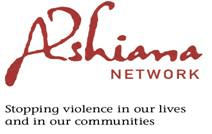Ashiana runs three refuges with a total of 21 bedspaces; two specifically for women aged 16-35 fleeing forced marriage. Within these refuges we designate a number of bedspaces for women with no recourse to public funds. The refuge provision includes independent living units in safe residential properties and a holistic package of support from a multi-disciplinary team including BME housing support workers, BME advice workers and BME counsellors.
We offer an advice and support service to women and girls who are experiencing VAWG, enabling them to make informed decisions and exit violent relationships. We provide counselling for women and girls affected by domestic violence and sexual violence. We also deliver an education programme for young people in secondary schools in East London aimed at preventing domestic violence and enabling young people experiencing domestic violence to access appropriate services. We deliver a range of awareness raising workshops for young people in the community and training on domestic violence for professionals in the voluntary and statutory sector.
Ashiana provides housing and support to women that present with a multiplicity of problems and complex issues. Some of the more destitute and vulnerable women are those that have no recourse to public funds, and we support them in terms of housing, outreach support and in resolving their immigration status.
- Call: 0800 970 2070
- Text: NCDV to 60777
- Email: [email protected]


